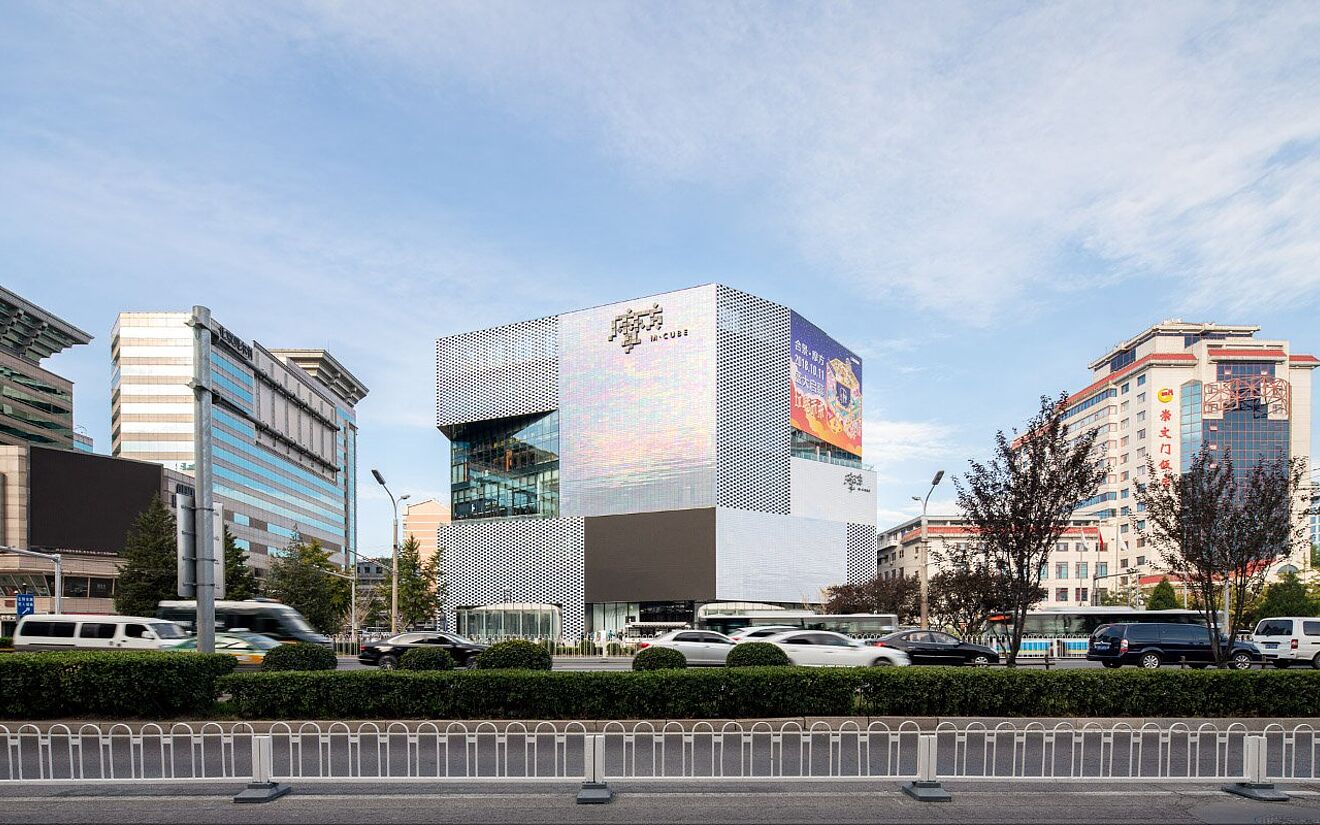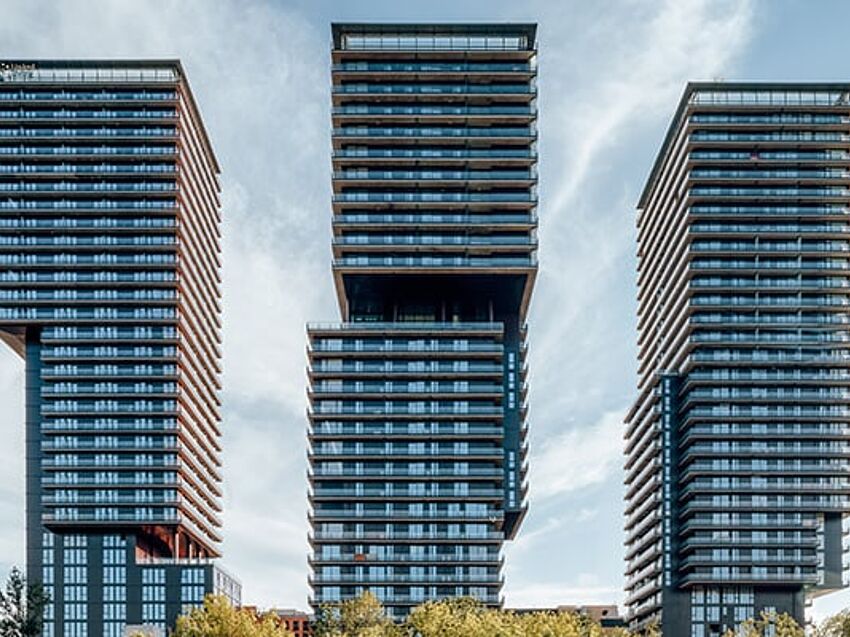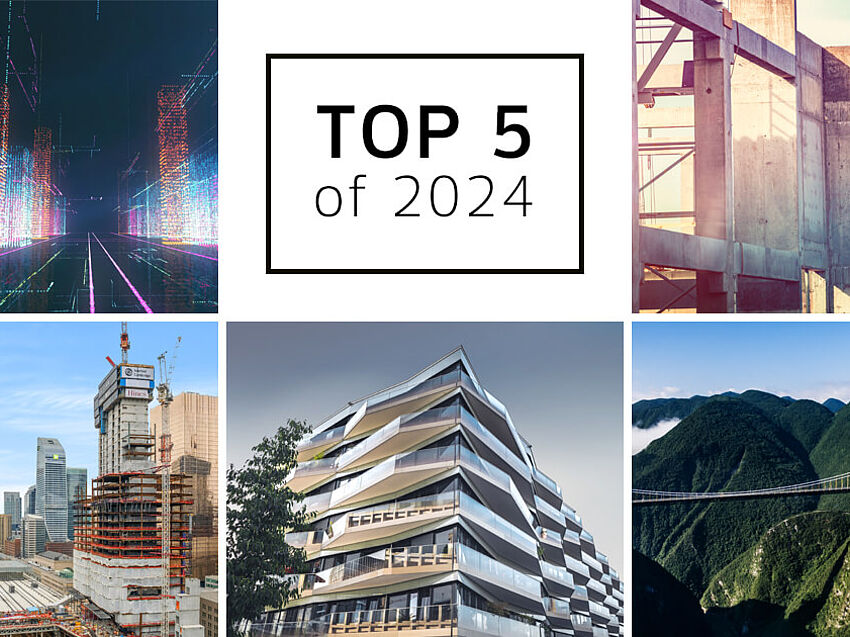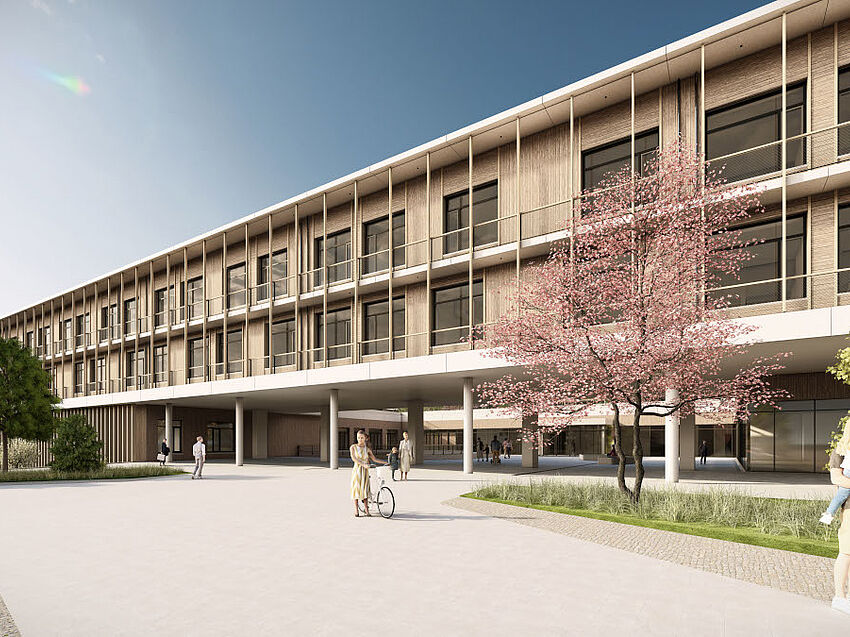MVRDV's Chongwenmen M·CUBE in Beijing has an unusual ceramic façade which, despite its enormous size, allows it to discreetly stand back.
As the figurehead of every house, the façade is of enormous importance. Like the face of a person, it not only shapes the first impression, but also represents the only one for all passers-by who will never enter the interior of the building in question. In façade design, not only the individual façade elements but also the material play an important role. Plaster, brick, wood, glass or various metals usually make the difference here. But there are also extravagant exceptions. For example, the Dutch architecture firm MVRDV has developed an unusual dress of shimmering ceramics for a shopping centre in Beijing.
Depending on the weather, lighting conditions and the position of the observer, the Chongwenmen M·CUBE shimmers partly greyish, partly in the full colour spectrum of the rainbow, as if it were covered with fresh soapy water. Often both at the same time, because the polygonal floor plan of the shopping mall in the heart of the Chinese capital offers a multitude of angles that reflect the light differently. Some of the larger areas are dotted and provide an additional show effect at night with coloured backlighting. The secret of the effective tiles lies in a special production, in which three different glass layers are applied to the actual ceramic tile, which were fired at different temperatures.
Reconciliatory
With its unusual façade, the Chongwenmen M·CUBE has a special unique selling point and yet, despite its considerable volume, is discreetly understated. In fact, this ambivalence is the reconciliation of two rather contradictory demands on the building. The client, KWG Property, wanted a building that would stand out from the surrounding, mostly beige and grey buildings and accommodate as much space as possible on a small floor plan. The city council, on the other hand, demanded that the Chongwenmen M·CUBE fit harmoniously into the existing buildings.
Behind the dazzling dress, a dichotomous mix of sales areas for the day and restaurants, bars and cafés for a pulsating nightlife rises up on seven storeys and over 40,000 square metres. Neither from the inside nor from the street, but only from a bird's eye view, one aspect reveals itself that respectfully anchors the mixed building in Beijing: each of the seven terraces is symbolically oriented to a special point of the city, such as the forbidden city or the heavenly temple.




